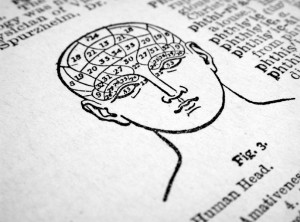 What is a Neurologist?
What is a Neurologist?
A neurologist is a medical doctor with specialized training in diagnosing, treating and managing disorders of the brain and nervous system. A neurologist’s educational background and medical training includes an undergraduate degree, four years of medical school, a one-year internship and three years of specialized training. Many neurologists also have additional training in one area of neurology such as stroke, epilepsy or movement disorders.
What is the role of the Neurologist?
Neurologists are usually consultants to other physicians. When a patient has a neurological disorder that requires frequent care, a neurologist becomes then the treating physician for the disorder.
In a consulting role, a neurologist will diagnose and treat a neurological disorder and then advise the primary care physician managing the patient’s overall health. For example, a neurologist would act in a consulting role for conditions such as stroke, concussion or headache.
Neurologists can recommend surgical treatment, but do not perform surgery. When treatment includes surgery, neurologists will monitor surgically treated patients and supervise their continuing treatment. Neurosurgeons are medical doctors who specialize in performing surgical treatments of the brain or nervous system.
What does a neurologist treat?
Neurologists treat disorders of the nervous system, brain, spinal cord, nerves, muscles and pain. Common neurological disorders include:
- Stroke
- Alzheimer’s Disease
- Headache
- Epilepsy
- Parkinson’s Disease
- Sleep Disorders
- Multiple Sclerosis
- Pain
- Tremor
- Brain Injuries
- Spinal Cord Injuries
- Back pain
- Peripheral Nerve Disorders
- Amyotrophic Lateral Sclerosis
 What is a neurological examination?
What is a neurological examination?
During a neurological examination, the neurologist reviews the patient’s health history with special attention to the current condition. The patient then takes a neurological exam. Typically, the exam tests strength, coordination, reflexes and sensation among some of the neurological body functions. This information helps the neurologist determine if the problem is in the nervous system. Further tests may be needed to confirm a diagnosis or to find a specific treatment.
What are some of the warning signs indicating you should see a neurologist?
- Persistent or sudden onset of a headache
- A headache which changes
- Loss of feeling or tingling
- Weakness or loss of muscle strength
- Sudden loss of sight
- Forgetfulness
- Lack of coordination
- Muscle rigidity
- Muscle spasms or tics
